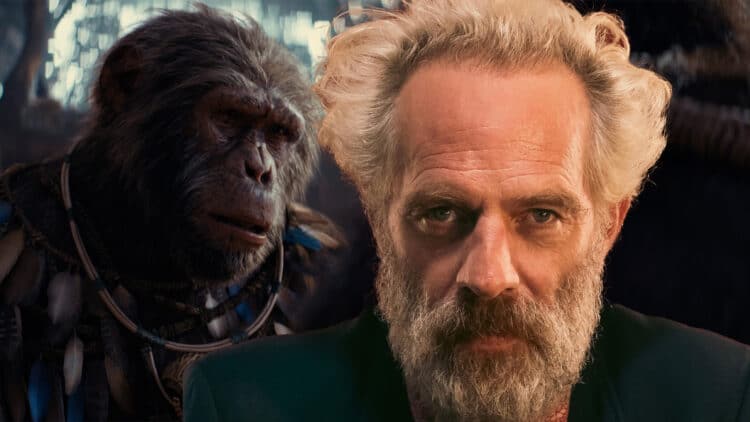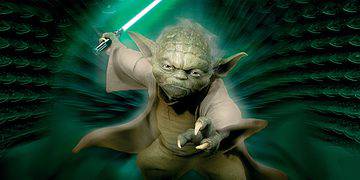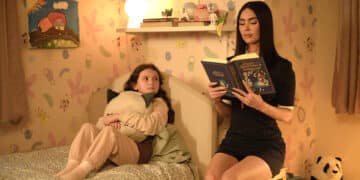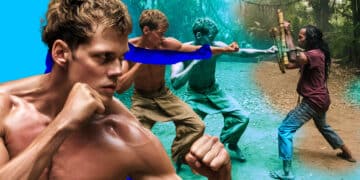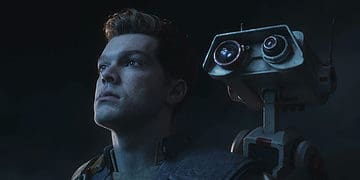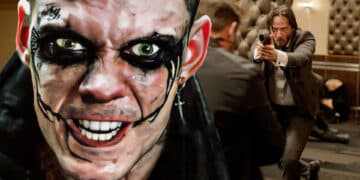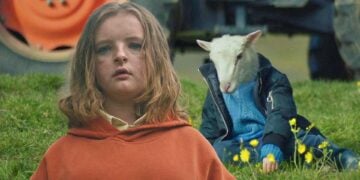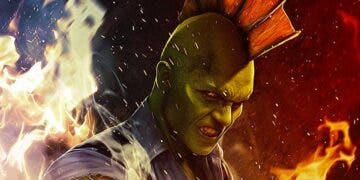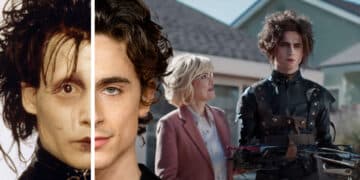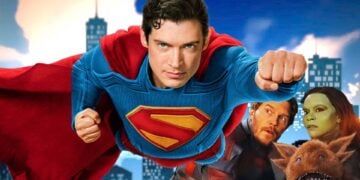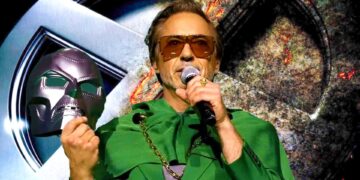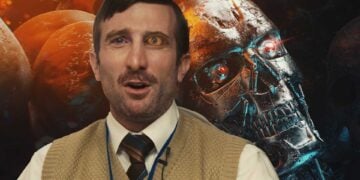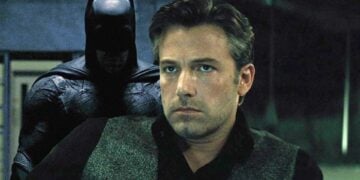Wes Ball’s Kingdom of Planet of the Apes beats its chest proudly as another standout entry in the franchise. One of the undisputed highlights of the film is actor Neil Sandilands who plays Noa’s father, Koro. South African fans hold a special place in their hearts for Sandilands after his lengthy stint as Bart on the popular soapie 7de Laan, while international audiences recognize him as the Thinker in The Flash and General Abbott in Sweet Tooth.
Fortress of Solitude caught up with Sandilands to discuss his character Koro in Kingdom of the Planet of the Apes and how the technological experience of this film differed from other productions he’s been in. In addition, Sandilands opened up about other projects he’d like to do in the future as well as what’s already in the pipeline.
Fortress of Solitude: Rise. Dawn. War. They were all critically acclaimed films in the Planet of the Apes franchise. What did you think personally when you heard there was a new film coming out? And were you concerned about the gravity of taking on such a role, especially after such an incredible trilogy of movies that came beforehand?
Neil Sandilands: For somebody who works in movies and film, I’m contextually aware, but it’s hardly the activation that I would pay attention to. So, for me, what was something that I had not done before was the idea of mo-cap. I haven’t worked in mo-cap. This presented me with the opportunity to approach a character from its physicality, as opposed to the cerebral aspects, and I wanted to see how that informs performance. Especially in my trajectory, I’ve been playing usually bad guys, [laughs], and there are pathologies or thoughts to the performance that come from the university, as opposed to the physicality. So, that was the big thing that was appealing to me.
Later on, I sort of understood it in context, etc., and I’m incredibly proud to be part of it. For me, what is fascinating about this is the years that passed. It becomes a sort of impression of where we collectively are at a certain point in time. It’s almost like documenting ourselves in a way. Then, with Kingdom of the Planet of the Apes, you got to look at it and go like, “Oh, my God, technologically, this is how far we’ve come from the first offering.” It’s got its finger on the pulse of where we are at, collectively, and I’m not even going to plot lines or anything like that – just the offering.
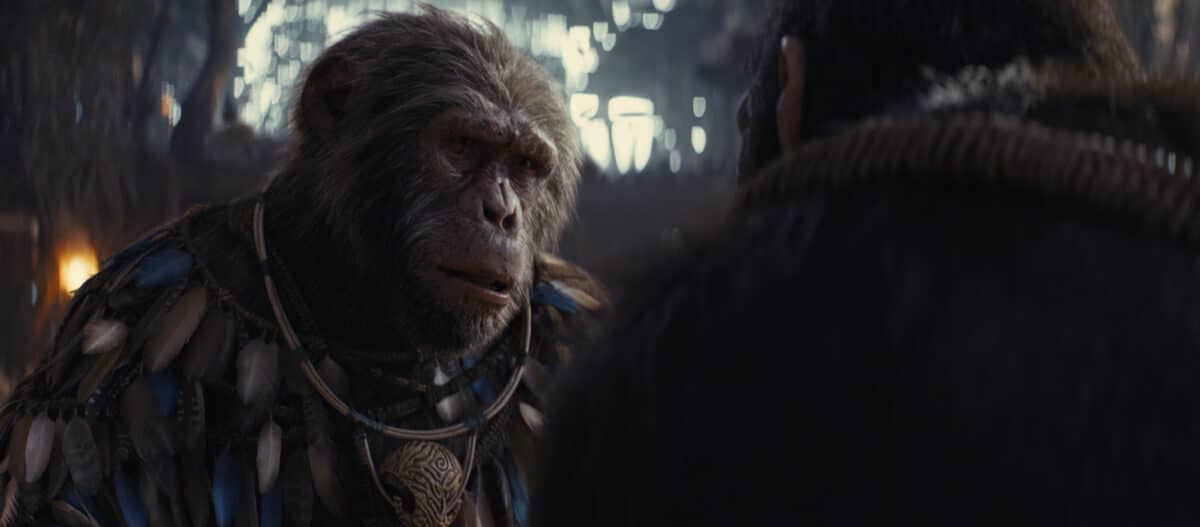
You mention motion-capture technology. How did this type of technology in Kingdom of the Planet of the Apes compare to some of the other projects you worked on in your career, such as The Flash and Sweet Tooth?
For most of the other parts that I played, we were able to attack it from a very organic analogue level – prosthetics in its most simple form. For example, the Thinker in The Flash – that was a silicone prosthetic that was placed on my face. In Kingdom of the Planet of the Apes, none. We had sets and we did some location work, but without giving away too much about the mystique of making something like that, we were in suits with markers and there was a mask of my face with markers so that they could track microexpressions, like muscle twitching. The methodology of making a film like this is quite different because you need to be cognizant of all the technicalities that are going on at any given time. There’s a bunch of people on the set – a lot of people on the set doing different things. [Laughs]. So once you get around that, you try to imbue the character with some form of authenticity and then you leave it. Then it goes off into post production, and it’s layers and layers and layers of rendering.
Even when I did the additional dialogue recording in Cape Town, I could see the renders, and they were truly impressive – but they were only maybe about 85% done. And then yet another and another until it’s seamless and polished. So that was fascinating. If you look at the end credits of the film like that, you get an impression of how many people were involved in creating that offering. That’s another thing that I think one should mention: It is a collective offering, simply by virtue of how many people it brings together to create something like that, which is fascinating. Perhaps another thing that needs to be said is Andy Serkis and Alain Gauthier helped us with deconstructing the physicality, so that it comes from a place of cellular understanding. So, when you get on set, you’re already in the posture and the movement of the primate.
You mention Andy Serkis here. Obviously, we all know what he did with Gollum in The Lord of the Rings and as Caesar in the Planet of the Apes. What was it like to pick his brain since he has all that experience, especially about moving like an ape?
Sometimes those moments… They can be somewhat surreal to me. But I’d like to offer this: I’ve worked with a couple really stellar names like Tom Hanks, Paul Greengrass, Andy Serkis, and a bunch of others. And I’m often struck by their congeniality, their gentlemanliness. I think there’s sometimes a warped idea about people of that stature, but they are super accessible. They’re friendly. They are keen to offer their knowledge. It’s on offer; it’s not like they are protective about it. It was pleasant.
Let’s discuss your character Koro. In the movie, Koro has limited screen time; however, his influence is felt throughout the film. As an actor, what is it like knowing the character might not necessarily be on screen too much, but he’s still a pivotal part of the movie and vital to Noa’s story arc?
There’s the old axiom: There’s no such thing as a small part because cinema certainly is – architecturally – a monumental offering. You take one of the pieces away, and the whole thing falls flat. Going back to Wes Ball and myself, there were a couple of hoops that I needed to jump through, and they must have seen something that they felt was at discernible temperature; that would go the distance. I feel affirmed that people would go like, “Yeah, maybe he’s got the gravity to just embody that for us, and that would go the distance.”
Like you rightfully say, there’s a minimum time to do a lot, but sometimes you feel it on set. With Owen [Teague], I certainly felt that scene that we did where he was telling me about them being in contact with the Echoes… Sometimes when you are on set, you feel that something cinematic registers in your performance with the other character. The two of you strike a moment of understanding. And I don’t know how this works – I honestly don’t – but I know that cinema captures it. I know the camera – and it’s so imperceptible – knows. So I felt that, and hopefully that carried. What I worked with there is two things: There’s a tension knowing full well that your boy, who’s coming of age, needs to leave the nest, metaphorically. Now, on the one hand, you know you want that for him, and you must let go. But at the same time, you also know that you have to have them drop the veil of innocence, [even though you wish] you could just retain innocence in this crazy old world a little while longer. And that’s where the movie finds us. Then obviously, mayhem ensues.
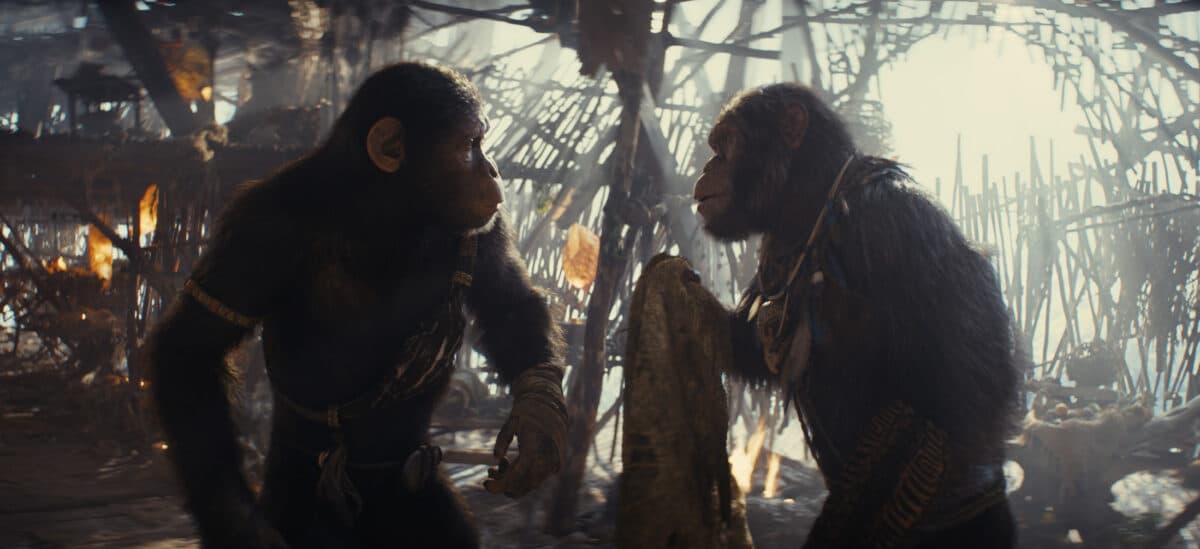
As an actor, you have had the opportunity to appear in a number of popular franchises, and this is another one for you. What is on your list of what you’d still like to do?
It would be so lovely to work with the auteur filmmaker, and we’ve got less and less of them these days. There’s a step over that happens from apprenticeship and even as a professional into mastery, right? So I would like to work with one of those masterful auteurs in my life sometime. It’s not like Paul Greengrass isn’t that – that’s not what I’m trying to say. But somebody with such a distinctly auteur attack like a Lars von Trier, Emir Kusturica, or Paul Thomas Anderson. It would be lovely to be involved in the ensemble of one of those things where it’s really trying to push the envelope of what we’re capable of. I think that would be on my wish list.
In the same breath, you have also taken interesting roles in productions like The Flash and Sweet Tooth. In fact, some people in South Africa have even suggested you should take on roles in something like Batman. If there was an opportunity to do something like that, would you be open to it?
As long as you write it. Write it right there. Me, the journalist, I suggest that this guy should be playing the next Joker and show Joaquin what he missed. [Laughs]. That’s just a joke, by the way.
[Laughs]. Of course.
That’s a very kind thing for you to say. I’m also super pragmatic. I’ve remained kind of sensible. I try to get the infrastructure to work and sometimes I’m just blessed. I think Gary Player said something to the effect of: “The more you practice, the luckier you get.” So, I work hard at it. I could only inform it to a certain degree and the rest of it is up to the ether and we’ll see where it goes. But I’m definitely signed up. I’m here. I’m raising my hand. Yeah, so let’s see what happens.
Finally, you mentioned that you’re going on tour with your band. But are there any other movies or projects that you’re busy doing that you’d like to speak about?
Well, for our local audiences, we did Die Groot Niks – the big nothing – about two and a half years ago, and the people enjoyed it, so we were doing a second season of that. So, in June, I head off into the interior of Africa, and all the way up to Kunene River. I’m the host of this, which I also enjoyed doing, so I’m doing that and tremendously looking forward to it. Then we’re doing the tour – 40 days, 40 nights – and I literally end on the fourth of August. On the fifth, I’m on a plane back to L.A. to go and work on The Surrender – an independent film cast by Robert Ulrich, who was also responsible for Dahmer. So that’s in the pipeline. I’ve got a full year until about October.
The interview was edited for length and clarity.
Catch Kingdom for the Planet of the Apes, which stars Neil Sandilands, in theatres now.
Kingdom of the Planet of the Apes |
|---|
Many years after the reign of Caesar, a young ape goes on a journey that will lead him to question everything he's been taught about the past and make choices that will define a future for apes and humans alike. |
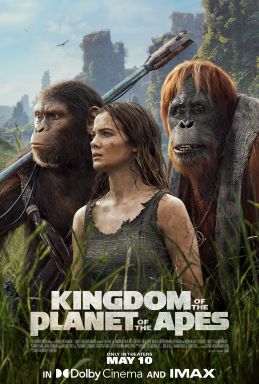 |
|---|
| Studio: 20th Century Studios |
| Running Time: 145 minutes |
| Release Date: May 10, 2024 |
| Cast: Owen Teague, Freya Allan, Kevin Durand, Peter Macon, William H. Macy, Neil Sandilands |
| Director: Wes Ball |
| Writers: Josh Friedman |
| Genre: Action, Adventure, Sci-Fi |
| Box Office: N/A |


